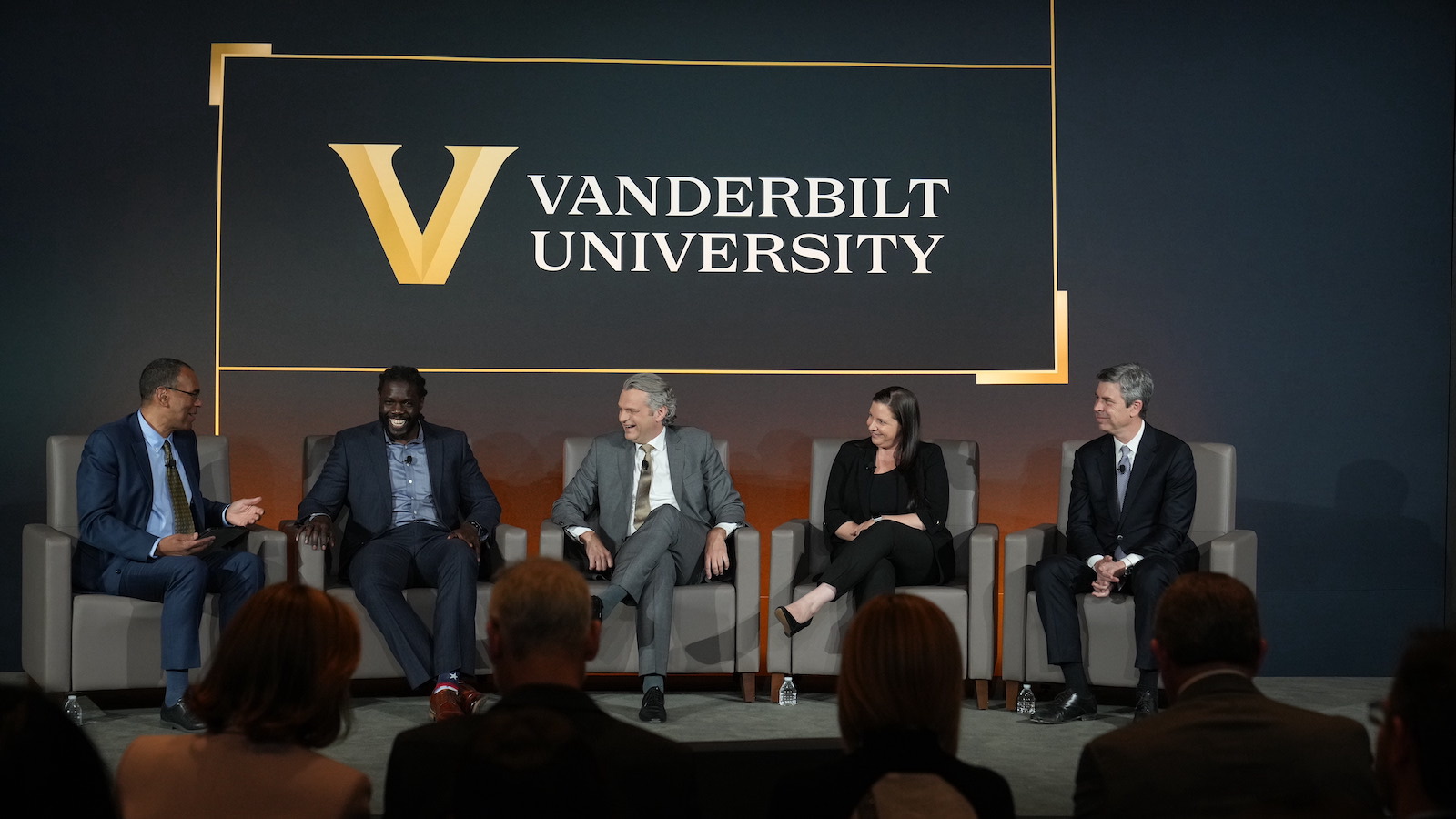Vanderbilt and Nashville are poised to lead the region in building a global hub of innovation and entrepreneurship, according to panelists speaking at the “Tennessee: Engine of Innovation” symposium on April 8. Held at the Tennessee State Museum, the discussion was among the events organized in conjunction with the investiture of Daniel Diermeier as the university’s ninth chancellor.
“Nashville and Vanderbilt have tremendous momentum, so we really need to think hard about how we support each other and how we break down the boundaries between our universities and the city,” Diemeier told the invitation-only crowd. “It’s really important for us that we set our aspirations high.”
Diermeier said despite examples of productive university partnerships in places like Silicon Valley and Boston, Vanderbilt and Nashville shouldn’t look to simply replicate other models.
We don’t want to be “the Silicon Valley of the South,” he said. “We should ask ourselves, ‘How do we build this in a way that is uniquely suitable for the region, that’s uniquely suitable to our culture and that doesn’t try to copy someone else?’”
Diermeier said Vanderbilt’s work in innovation and entrepreneurship will be vital to the future success of the university and the city and that his administration will look for ways to invest in the necessary infrastructure to support those efforts. “It’s not just a nice thing to have and tomorrow we’ll do something else. This is crucial for us,” he said. “If you, as a university, don’t have a thriving innovation and entrepreneur ecosystem, you will not be a great university.”
Diermeier was joined by panelists Andy Berke, U.S. Department of Commerce special representative for broadband and the former mayor of Chattanooga; Richard Florida, writer, researcher and founder of the Creative Class Group; Courtney Ross, senior manager of external affairs for Amazon; and Marcus Whitney, founder and managing partner of Jumpstart Nova. David Owens, the Evans Family Executive Director of the Wond’ry, Vanderbilt’s Innovation Center, moderated the discussion.
Florida, who is the author of The Rise of the Creative Class, said he’s been tracking Nashville in his work for about 30 years. Beginning in the late 1990s and early 2000s, he noticed a shift take place within the music industry where Nashville suddenly accounted for a larger market share of popular music than New York and Los Angeles combined.
“For me this was really interesting,” said Florida, whose appearance at the symposium was delayed due to travel. “Where musicians go, and where they nestle around, usually means other kinds of highly innovative and creative people could find a way to make a life there.”
He said his predictions in recent years of Nashville’s rise have largely come to pass. Now, Florida said, he detects another shift taking place: a new “porousness” between Vanderbilt and the region.
“It’s not only good for Nashville, but it’s also somewhat unique for almost any place,” Florida said. “I think all of that bodes well.”
Panelists discussed Vanderbilt and Nashville being poised to lead the Southeast in building a global hub of innovation and entrepreneurship during an April 8 symposium held at the Tennessee State Museum. (Photos by Vanderbilt University)



